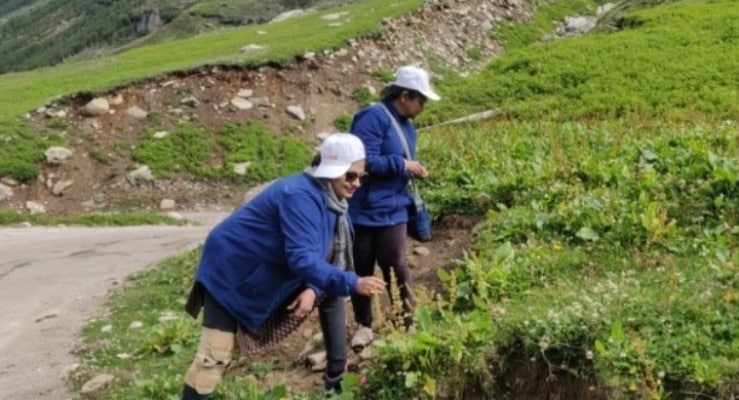 The all-women ZSI scientists were on a 15-days-trek to Lahaul to study endemic fauna.
The all-women ZSI scientists were on a 15-days-trek to Lahaul to study endemic fauna. A seven-member women’s team of zoologists will study 1,616 faunal samples belonging to 19 groups that were collected during their maiden high-altitude trek last month to Lahaul in Himachal Pradesh.
Led by Dr Dhriti Banerjee, director, Zoological Survey of India (ZSI), the scientists spent 15 days in the remote locations of Lahaul and Spiti. The expedition aimed at exploring the remote Himalayan ecosystem of Lahaul valley and recording rare and endemic faunal diversity.
 The researchers said that DNA will be extracted for a few key species which will act as a genetic library for future research.
The researchers said that DNA will be extracted for a few key species which will act as a genetic library for future research. During the trek ranging between altitudes of 2,800 and 5,800 metres above mean sea level, the ZSI scientists spotted Himalayan marmot, Royle’s Pika, Hill Pigeon, Red-billed chough, chukar partridge, migratory and water birds and some rare species of butterflies. The scientists shared that their sample collection covers lesser-explored faunal groups, including insect fauna like pollinators, pests, soil fauna, annelids, spiders along with molluscs, protozoa from the Himalayan environment. This area is also rich in fossils.
Planned to mark India’s 75 years of Independence, the expedition covered Miyar, Udaipur and Ghepan vallies, Baralacha and Shinkula passes, and Suraj Tal, a freshwater lake. Scientists who participated in the high altitude Himalayan expedition had, apart from Banerjee, Avtar Kaur, Indu Sharma, Debashree Dam, Deepa Jaiswal, Shantabala Gurumayum, and Aparna Kalawate.
“Many more expeditions will follow in the days to come. These treks will definitely come up with new findings on rare fauna. I am hopeful that continuous surveys will lead to many new faunal species discoveries,” said Banerjee.
The research findings, scientists said, will be useful in establishing a baseline data which will help to understand various aspects of this unique remote ecosystem which is home to rare fauna. These findings will help us understand the impact of climate change on the fauna. The researchers said that DNA will be extracted for a few key species which will act as a genetic library for future research.